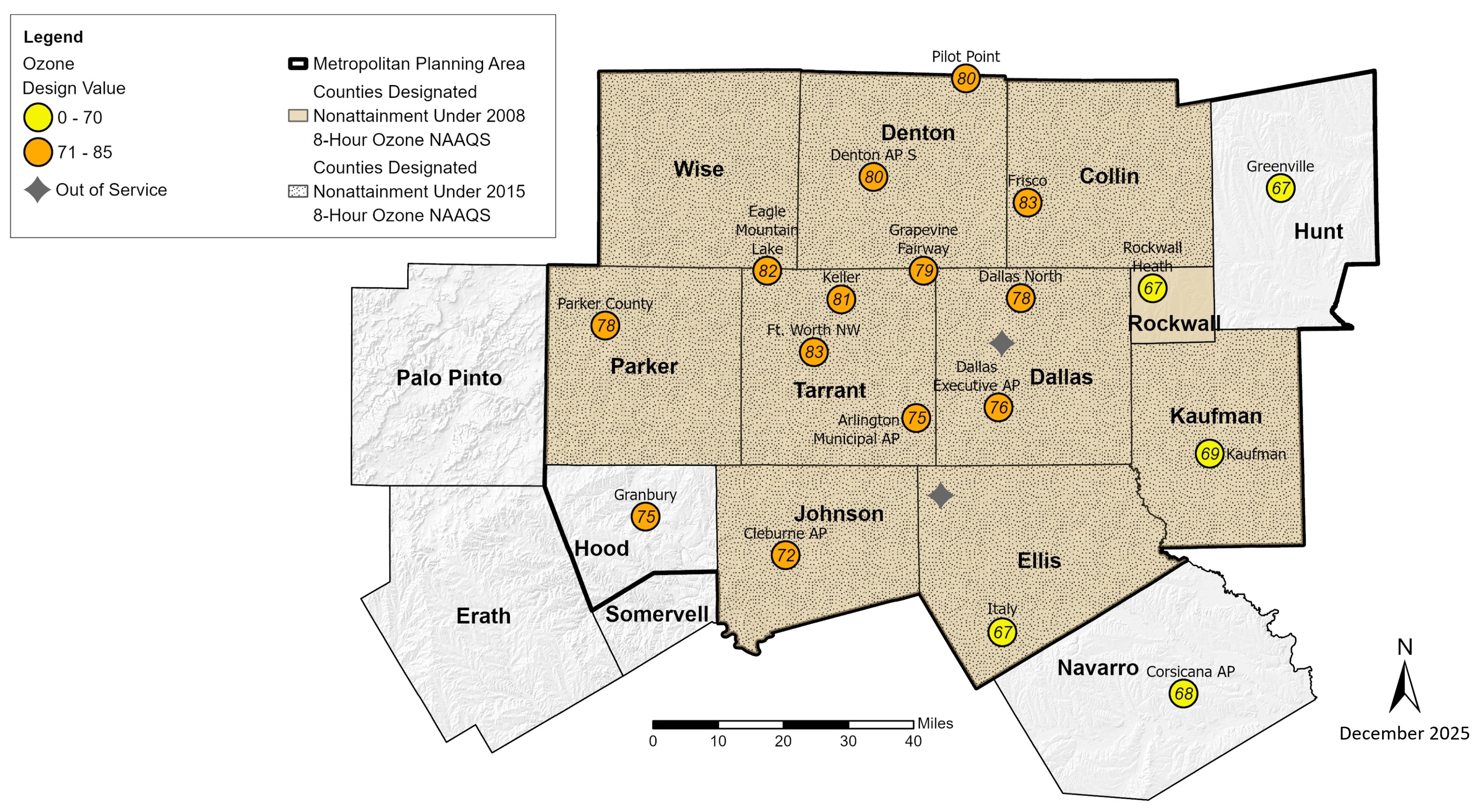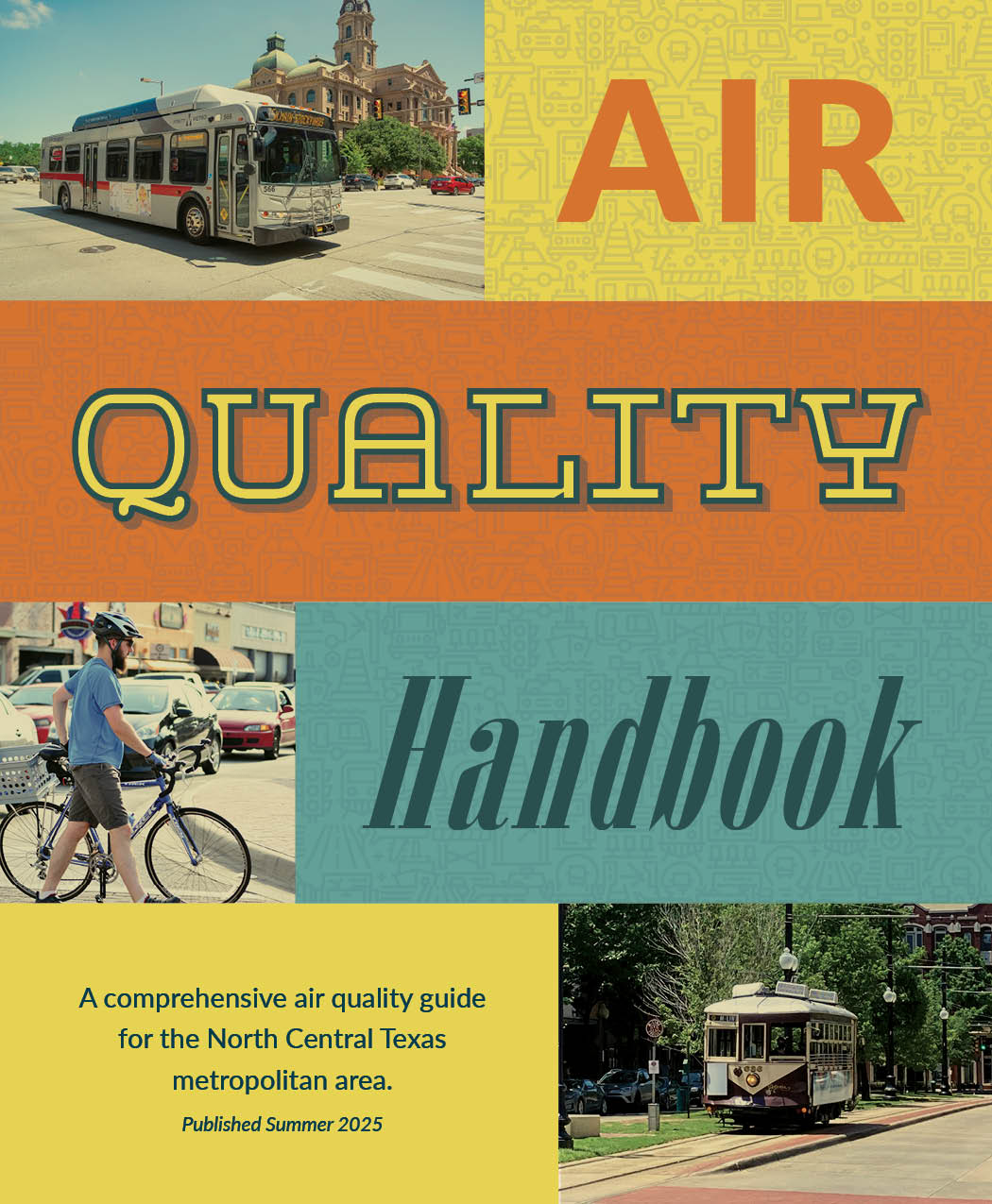Air Quality
North Central Texas Council of Governments (NCTCOG) works in cooperation with federal, state, and local stakeholders to improve air quality in the North Central Texas region. The 2025 NCTCOG Air Quality Handbook provides a full breakdown of the region's air quality and the air quality initiatives currently being implemented by NCTCOG with local stakeholders.
Background
In 2012, the U.S. Environmental Protection Agency (EPA) designated ten counties (Collin, Dallas, Denton, Ellis, Johnson, Kaufman, Parker, Rockwall, Tarrant and Wise) in North Central Texas as nonattainment for the pollutant ozone in accordance with the 2008 8-hour ozone National Ambient Air Quality Standard (NAAQS).
In 2015, the EPA strengthened the 8-hour ozone NAAQS, and on June 4, 2018, EPA designated nine counties (Collin, Dallas, Denton, Ellis, Johnson, Kaufman, Parker, Tarrant, and Wise) as nonattainment for the 2015 8-hour ozone NAAQS. Development of an air quality plan, known as the State Implementation Plan (SIP), is required for all regions designated as nonattainment to demonstrate how ozone will be reduced to meet federal air quality standards. The North Central Texas region is currently in nonattainment for these two ozone standards. 
Ground-level ozone negatively impacts the health of people and the environment. NCTCOG is continually working with federal, state, and local partners to attain the ozone NAAQS for the Dallas-Fort Worth region and contribute to a better quality of life for all North Texans.
While NCTCOG’s primary air quality efforts are focused on reducing ozone, they can also reduce other air pollutants, thereby supporting efforts to improve air quality comprehensively, which can result in improved public health and well-being. Air quality improvement strategies can be carried out by everyone, including individuals, local governments, and businesses.
Current Air Quality Initiatives
To address the human and environmental impact of air quality, NCTCOG has developed a task force working together to address the public health implications of traffic-related air pollution. Local governments across the region are also working with NCTCOG to develop the Dallas-Fort Worth (DFW) Air Quality Improvement Plan (AQIP). NCTCOG’s Regional Integration of Sustainability Efforts (RISE) Coalition works with interested local governments to support environmental initiatives, which include improving air quality.









